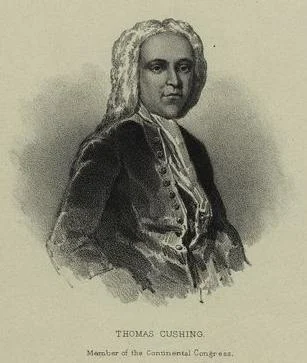William Williams Supports A Religious Test
William Williams was a signer of the Declaration of Independence.
Though he would later support the Constitution, he had reservations regarding the clause which banned religious testing.
William Williams
William Williams was a busy man.
By 1774, this merchant had married into the Trumbull family as well as holding the positions of town clerk, church deacon, and militia Colonel. Oh yeah, he served on the town council too. Additionally, he served on several committees intent on resolving competing land claims with other colonies.
As a self-made man, Williams felt the pressure of British taxation more than some of his more established competitors.
Continental Congress
Like many upset colonials, William Williams wrote essays for publication in several local papers.
By the time of Lexington and Concord, he began donating his own money to raise troops for the support of Boston. He then walked to his neighbors in an attempt to convince them to do the same.
Williams established himself so soundly within Revolutionary politics that, in 1776, he was sent to the Continental Congress to replace an ailing Oliver Wolcott. Although he arrived too late to vote on the resolution to separate from Great Britain, Williams showed up in time to sign the Declaration of Independence.
He was then appointed to the committee which drafted the Articles of Confederation.
Freedom of Religion
Williams was returned to the Continental Congress, where he was present for the installation of the Articles of Confederation as the new government.
Years later he would be sent to the Connecticut Ratification Convention which considered approval of the United States Constitution. During these debates, Williams associated with the Anti-Federalists.
Early in life, before his career as a merchant, Williams had been trained as a minister. Always a devout man, William’s main concern with the Constitution was its rule banning religious tests to hold political office. He believed certain religious beliefs were necessary for the character of a man who would lead.
Considering Connecticut still had a State Religion, this belief is not necessarily surprising. Williams was, however, one of the few Anti-Federalists who chose this reason as their main place for objection.
Despite his reservations, Williams decided to vote in favor of the Constitution, as it seemed to him an important tool in setting the nation of the right course.
William Williams then ‘retired’ into the position of county judge holding this position for twenty years until his death.
If you’d like to learn about other religious leaders during the Founding Period, you might like my articles on Benjamin Contee and Samuel Kirkland.
To learn more about the signers of the Declaration, you should pick up a copy of my favorite little book of bios ‘Signing Their Lives Away.’ Much like this site, it gives fun biographies of the signers of that document. Pick it up through the Amazon affiliate link below.
If you are new here, please consider subscribing to the email list as we publish new articles every day.






